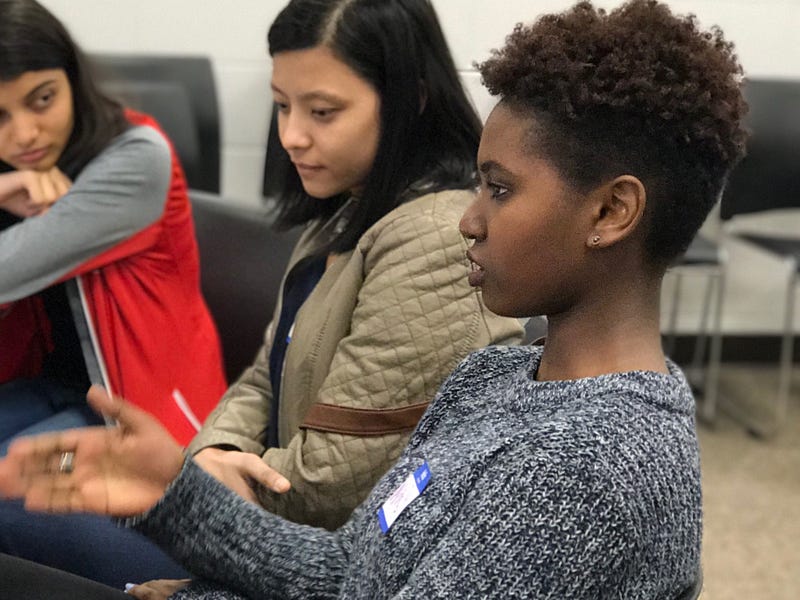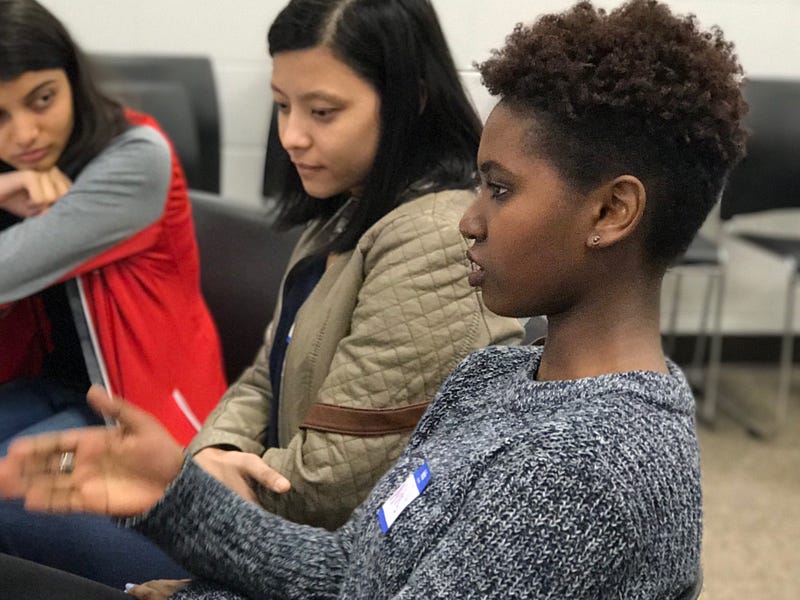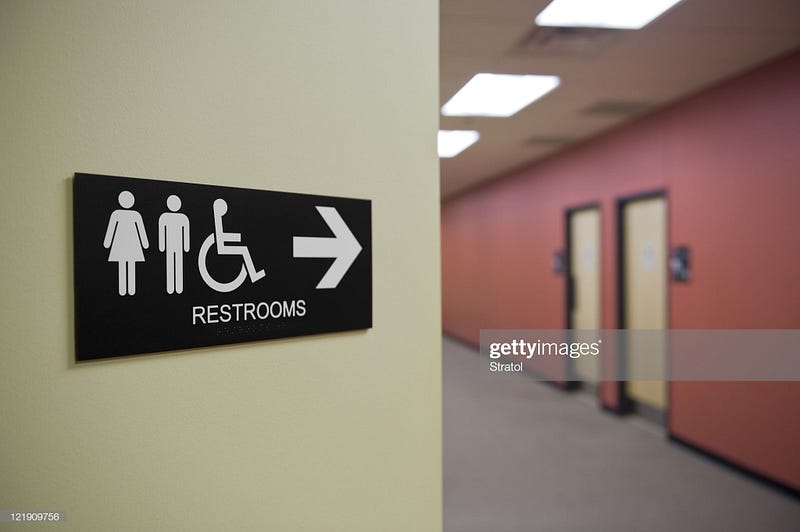Mary Supeños is a senior at Fern Creek High School. Five years ago, she was relocated to Louisville from Botswana as a refugee. She is originally from Rwanda. She recently participated in a roundtable conducted by the Prichard Committee Student Voice Team; excerpts from our conversation are below.

My family’s from Rwanda. After the genocide, everything was fine, but at some point we started facing religious persecution because we’re Jehovah’s Witnesses. My family moved to Tanzania. I was really young, so I don’t know what happened, but we moved to Malawi, and then to Zimbabwe, and then Botswana.

I grew up in Botswana, so that’s mostly all I know. The Botswanan government was resettling refugees elsewhere, so we got resettled in the U.S. We didn’t really get to pick; it was the only option we had. We couldn’t stay in Botswana, and we couldn’t go anywhere else, so this was the best option. I think it took five years. Medical checks and background checks and all those.
At home we speak in Kinyarwanda (official language of Rwanda) and Kirundi… I speak five languages: Kinyarwanda, Kirundi, Swahili, Tswana, and English… Other countries think the US is all about freedom and opportunities… there’s more freedom than other countries, but [because of the new presidency], it’s not as promising as it was five years ago.
These days, foreigners are labeled, especially if they’re from North Africa or somewhere close to the [Middle] East, you’re kind of labeled as terrorists.
In the travel ban, they stop some African countries from entering the U.S. So when people hear about African countries which are banned, they automatically assume [all Africans are] terrorists like the ones who are banned. Being labeled that way makes you feel like you’re not getting what you expected.
I like the education system here, and I like the way things run. As a student, I appreciate the opportunities I’ve been opened to, especially as an immigrant, since I didn’t have the same fortunes back home.
The bad part of it is that people don’t seem to understand what an immigrant is.
They assume you came in illegally and tried to take over what others already have. They need to know that immigrants come here legally and have had background checks done for a long time. It’s good here, but it’s bad being misunderstood.
When you first move here, and you speak another language or you have a thick accent, they just drop you into the ESL class to learn English. And then they just drop you into the honors classes, and that’s about it.
The kids in ESL were from all over the world, and almost none of them spoke the same language. But the teacher [didn’t] speak any other language except English. They try to make you understand, but if you don’t speak even a tiny bit of English, that’s not good. But here in Louisville, they have a school called ESL Newcomers Academy, and if you don’t speak even a little bit of English, you go there, and then you get transferred to a different school.
For Fern Creek, they had just one Nepali teacher. I’d try to get other teachers who speak different languages. I think that would have helped because in my other classes, it was kind of hard to understand what was going on with it being a different language and a different subject. So if I had a teacher who spoke my language, it could have been easier.
When I first got here, I hadn’t known that AP classes or advanced classes existed. If I had known, I’d have tried to take them earlier. When I came here, I wasn’t told anything about them. I found out about them for myself in junior year, and that’s when I started taking them. But for other students who came in as immigrants and didn’t find out, they are forced to stay in lower classes that don’t do them any justice. Some are really intelligent students who would do really well in AP classes, but they never knew about them, no one ever told them about them, so they don’t have AP classes on their high school transcript, which won’t look as good on their college application.

This interview was conducted by Zachariah Sippy, Emanuelle Sippy, and Pearl Morttey on March 10, 2017. It was transcribed by Sadie Bograd and edited by Eliza Jane Schaeffer.
This piece is one of many in the Forum’s Refugee and Immigrant Series. These students have inspiring and sometimes heartbreaking stories, but their voices are all too often overlooked. Over the course of the past few months, the Student Voice Team has spoken with refugee and immigrant students to not only gain a better understanding of their personal experiences but also hear their take on the new Administration and the worldwide refugee crisis. Over 21,000 students speaking 139 different languages receive Kentucky’s English Learning services which are offered in 70 school districts spanning the Commonwealth.
The opinions expressed on the Forum represent the individual students to whom they are attributed. They do not reflect the official position or opinion of the Prichard Committee for Academic Excellence or the Student Voice Team. Read about our policies.











